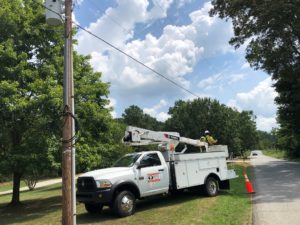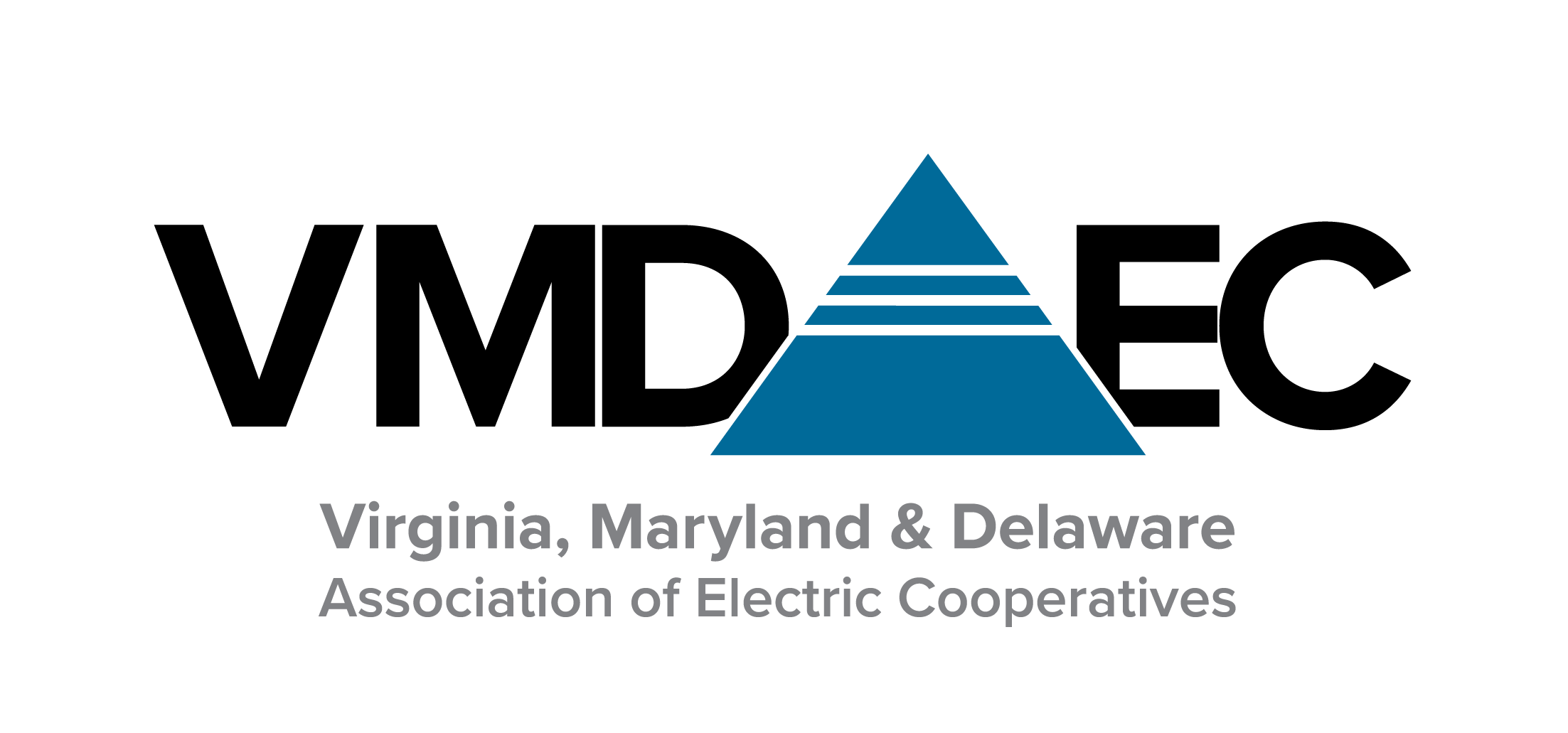As school resumes this fall, electric cooperatives are supplying broadband solutions to help parents, children and families in parts of rural Virginia deal with the challenges of virtual work and virtual learning.

Central Virginia Electric Cooperative is meeting the broadband needs of its 37,000 members.
Several cooperatives are working diligently to expand fiber-to-the-home projects so unserved or underserved Virginians have access to the high-speed internet they need to work safely at home while their children learn online.
Additionally, other cooperatives are exploring novel partnerships where it makes economic and social sense to promote remote work and remote learning.
Officials say that electric cooperatives are reaching out to bring high-speed internet to rural America in much the same way that they stepped up to bring power to the countryside in the 1930s.
“We don’t have a better partner than our electric cooperatives,” said Evan Feinman, the chief broadband adviser to Gov. Ralph Northam, at a recent funding award presentation in Fluvanna County.
Not all cooperatives are directly involved in broadband because it is a high-cost, capital-intensive effort that must make sense for the co-op and its members. However, many are increasing their reach in light of service needs caused by the pandemic.
BARC Electric Cooperative, based in Millboro, is moving forward with BARC Connects, its world-class broadband service during the pandemic, continuing to bring members online in Bath and Rockbridge counties. The co-op is well into Phase 2 of its three-phase broadband project and anticipates it will have 2,400 residential consumers online by the end of 2020.
Tish Blackwell, communications specialist, said there’s never been a time when broadband was more important. Yet there’s never been a time when there were more constraints to buildouts.
“There were a lot of hard choices that had to be made,” she said. “Do we stop or do we go on? How do we do it safely for our staff and for our consumers?”
With the need for reliable Internet being greater than ever, BARC quickly developed a Safe @BARC action plan to continue broadband construction and ramp up on-premise installations to meet the community need for service, while conducting activities safely to protect public health.
When public schools closed in the spring, BARC created hot spots for “parking lot service.” These hotspots provided available public Wi-Fi in the short term while BARC stepped up its efforts since the pandemic hit, increasing installations to nine or more subscribers per day. Currently, BARC Connects is averaging 40 to 50 on-premises installations a week, Blackwell said.
Central Virginia Electric Cooperative, which is headquartered in Nelson County, has committed to bringing its Firefly Fiber Broadband to all 37,000 members by July 2022. The ambitious project involves installing more than 3,600 miles of fiber-optic cable across all or parts of 14 counties.
More than 3,000 members are already online and CVEC says more than half of all members in most substation areas are choosing to take the Firefly service which features sped of up to 1 gigabyte per second.
Most recently, CVEC announced it would tap stimulus funds under the federal Coronavirus Aid, Relief and Economic Security Act, as a one-time opportunity to expand its presence in Nelson County, just in time for fall classes.
“These projects will connect homes and businesses plus allow for additional free Wi-Fi hotspots to help school children and remote workers in several areas across the county,” said CVEC President and CEO Gary Wood. “They will fit into our schedule without diverting attention from the system-wide CVEC fiber build, which is speeding up to get as many people access to broadband as fast as possible.”
Prince George Electric Cooperative, based in Waverly, is expanding its high-speed Ruralband service. It also has offered a number of free Wi-Fi hotspots across its service territory, while encouraging users to stay in their cars and respect social distancing guidelines.
“With so many of our members working from home, the digital divide has never been more apparent. Whether it’s educational work, online business meetings or checking in on loved ones, our goal is to help our communities stay connected while our crews continue the broadband construction as quickly and safely as possible,” said Casey Logan, president and CEO of PGEC.
Recently, Prince George County invested another $1 million to help Ruralband expand its reach in the county southeast of Richmond, where economic development is a top priority.
“The response that we have been getting have been exceptional,” said Renee Chapline, PGEC senior vice president of government relations and member engagement. “People recognize that working from home and learning at home are going to be with us in some form long after this pandemic passes, and that adds even more importance to closing the digital divide.”
Headquartered in Chase City, Mecklenburg Electric Cooperative offers broadband through its wholly owned Empower Broadband subsidiary. MEC also provided hotspots when the pandemic hit but sees broadband as part of a long-term plan to boost economic development in Southside Virginia.
Empower is working on a program, announced late in 2019 with a boost from the U.S. Department of Agriculture, to bring fiber-to-the-home to 1,250 households in Brunswick County. As well, MEC is currently deploying 135 miles of fiber-optic cable in Pittsylvania, Halifax, Charlotte, Mecklenburg, Brunswick and Greensville counties.
And under an early grant, MEC will initially offer this ultra-high-speed service to thousands of homes and businesses within 1,000 feet of the lines. “The initial fiber-optic network ring will be fully deployed by the end of this year, and we’ll then turn our attention to building out fiber to new areas, utilizing that ring as our ‘transmission’ system,” said John C. Lee Jr, president and CEO of MEC and Empower Broadband.
Craig-Botetourt Electric Cooperative, in New Castle, is kicking off its “Bee Online Advantage” broadband network. The co-op reports a positive response for preregistration of the service. It has completed considerable trenching and conduit work in target areas, and workers are starting to lay fiber cable.

